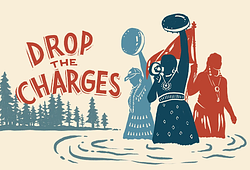
In honour of National Indigenous Peoples Day, FortisOntario is pleased to be rolling out the $10,000 Future Generations Scholarship program available to the Wataynikaneyap Power Project’s 24 owner First Nations.* This scholarship represents respecting First Nation way of life and what we leave behind for future generations to come, or chinagatamaageyeg (Anishinabe, “to leave something behind for others”). Students who meet the following criteria are eligible to apply for the Future Generations Scholarship:
• Enrolled in a post-secondary or trade program for the 2022/2023 school year, with a minimum of two years remaining in their studies
• Interested in pursuing a career in the Ontario energy sector
• Respect the values of the Wataynikaneyap Power Project, the Project’s Guiding Principles, and willing to champion the Wataynikaneyap Power Project in public forums
• A member of one of the Wataynikaneyap Power Project’s 24 First Nation owner communities*
*The following First Nations are owners in the Wataynikaneyap Power Project: Bearskin Lake, Cat Lake, Deer Lake, Kasabonika Lake, Keewaywin, Kingfisher Lake, Kitchenuhmaykoosib Inninuwug, Lac des Mille Lacs, Lac Seul, McDowell Lake, Mishkeegogamang, Muskrat Dam, North Caribou Lake, North Spirit Lake, Ojibway Nation of Saugeen, Pikangikum, Poplar Hill, Sachigo Lake, Sandy Lake, Slate Falls, Wabigoon Lake, Wapekeka, Wawakapewin, and Wunnumin Lake.
The Wataynikaneyap Power Transmission Project is an unprecedented First Nations-led project to build approximately 1,800 kilometres of transmission lines in Northwestern Ontario to connect remote First Nations communities to the Ontario power grid. The project will reinforce the existing transmission grid to Pickle Lake and will expand grid service north of Pickle Lake and Red Lake to ultimately connect 17 First Nations. These communities are currently provided electricity through diesel generation.
Scott Hawkes, President and CEO of FortisOntario, remarks, “FortisOntario is offering this Future Generations scholarship to support First Nations’ post-secondary education goals. As a partner in the Wataynikaneyap Project, we encourage First Nations youth to pursue educational opportunities, and on this day of celebration, we embrace the diverse culture of Indigenous peoples.”
“We are delighted that FortisOntario has provided this opportunity to support a student from the owner communities. Future generations are the reason we are building this transmission line. This is their project. They will receive maximum benefits in the Project, and this will provide for generations to come,” Margaret Kenequanash, CEO of Wataynikaneyap Power, also remarks. “Our youth are strong and resilient, and I look forward to seeing their applications!”
Please see www.wataypower.ca/project/scholarships for more information! I am sending this in case it is of interest to your audience. If you no longer wish to receive news on the Wataynikaneyap Power Project, please reply “unsubscribe”.
About FortisOntario Inc.
FortisOntario is an electric utility, which owns and operates Canadian Niagara Power Inc., Cornwall Street Railway Light & Power Company Ltd., and Algoma Power Inc., serving a combined approximate 66,000 customers. FortisOntario also owns regulated transmission assets with approximately 3,460 kilometres of distribution and transmission lines, and meets a peak demand of approximately 257 MW. FortisOntario also act as project manager for the Wataynikaneyap Power Transmission Project. For further information visit www.fortisontario.com. FortisOntario is a subsidiary of Fortis Inc., a leader in the North American regulated electric and gas utility industry. For further information visit www.fortisinc.com.
Media Contact
Kristine Carmichael, Director of Corporate and Customer Services
FortisOntario Inc.
905-994-3637
Kristine.Carmichael@fortisontario.com
About Wataynikaneyap Power
Wataynikaneyap Power is a licensed transmission company majority-owned by a partnership of 24 First Nations in partnership with Fortis Inc. and other private investors, regulated by the Ontario Energy Board. FortisOntario Inc., a wholly owned subsidiary of Fortis Inc., acts as the project manager through its wholly owned subsidiary, Wataynikaneyap Power PM Inc. The 24 First Nations also established Opiikapawiin Services to lead the community engagement and participation for Wataynikaneyap Power LP. To connect remote First Nations communities to the electrical grid, Wataynikaneyap Power will develop, manage construction, and operate approximately 1,800 kilometres of transmission lines in northwestern Ontario. For further information, please visit: www.wataypower.ca or www.oslp.ca.





















